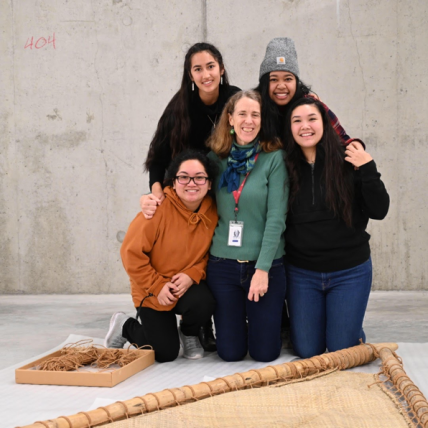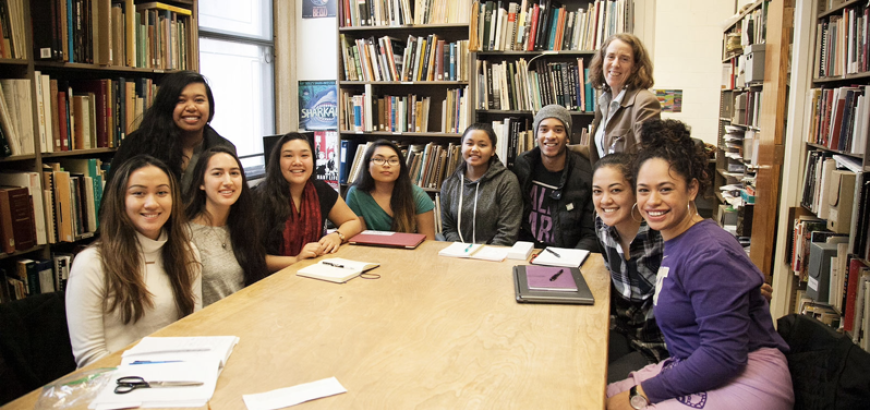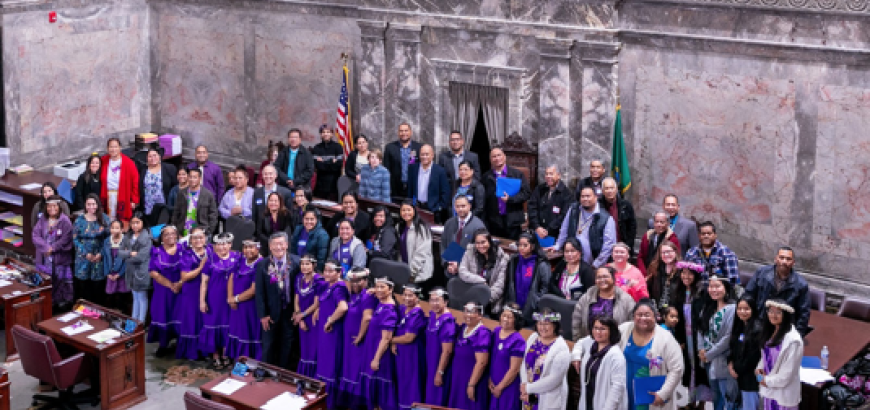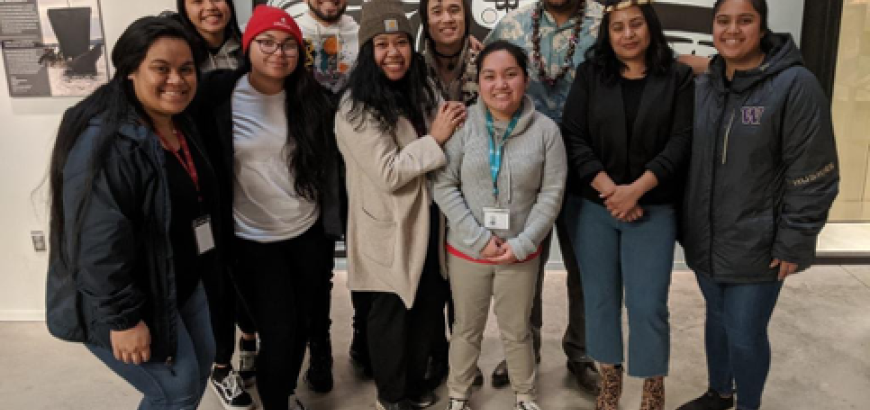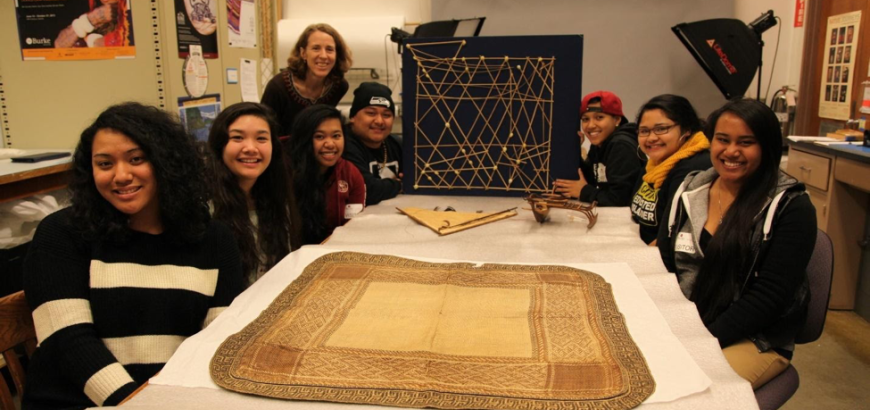By Rachael Tamngin and Holly Barker
Anthropology graduate student Rachael Tamngin and Pacific Islander students at the Burke Museum created the first version of “Research Family” in 2013 with the guidance of Dr. Holly Barker, Curator of Oceanic and Asian Culture. Research Family came into being as a way to activate the Pacific Islander cultural collections at the Burke and to open research opportunities for students underrepresented in research. As its name implies, Research Family brings family-like relationships into an academic context, and centers Pacific Islander students’ families, Indigenous Oceanic knowledge, values, and languages in collections-based research.
In addition to creating family and belonging at a Predominantly White Institution, Research Family actively involves Pacific Islanders in decolonization efforts at the Burke Museum. Students learn from family and community members how to access and interpret the intellectual knowledge in the cultural collections and to represent their communities’ knowledge to the broader community in venues such as the UW Undergraduate Research Symposium. On a campus where Pacific Islander students make up 1% out of the nearly 50,000 University of Washington (UW) students, Research Family brings visibility to Pacific Islander intellectual contributions embodied in the cultural collections at the Burke Museum. Where the collections from Oceania once sat in silence before Research Family leadership, students now breathe life into the cultural pieces through storytelling, dialogue, and laughter.
Research Family members come from various programs, fields of study, and backgrounds allowing them to approach community concerns with different skill sets and perspectives, emphasizing holistic and collaborative approaches to research. For the Pacific Islander students who created and maintain Research Family, their work uses Indigenous Oceanic research methods to cultivate connections between students’ home and university lives while supporting success in research. Students host events with significant historical importance to their communities, invite elders to the Burke to support intergenerational learning opportunities, and advocate alongside community members and leaders to address socio-economic injustices. Students maintain relationships with their ancestors through active engagement at the Burke as a means of healing intergenerational traumas and reconnecting to their respective heritages’ and cultural roots. Since the day it was formed, the interactions and experiences cultivated through Research Family help support the health of students and their broader communities.
In recent years, Research Family has expanded its reach to become Research Families with the support of the Center for American Indian and Indigenous Studies (CAIIS). During the 2019-2020 school year, Research Family grew from one group to several Pacific Islander-centered families focusing on the Compact of Free Association, Samoa, and Indigenous Oceanic Research Methods. The 2020-21 academic year marked the start of a Research Family for Pacific Islander graduate students led by Rachael Tamngin. Participating graduate students go beyond the University of Washington, and include Seattle University, Baylor University, and the University of Hawai’i, Manoa. Beyond Pacific Islander communities, Research Families now includes faculty and student-led, collections-based research with Black, Native, and Southeast Asian students. Research Family continues to reflect the skills and strengths of students to push the boundaries of what “traditional” research looks like in higher education in the pursuit of more equitable opportunities for marginalized communities.
